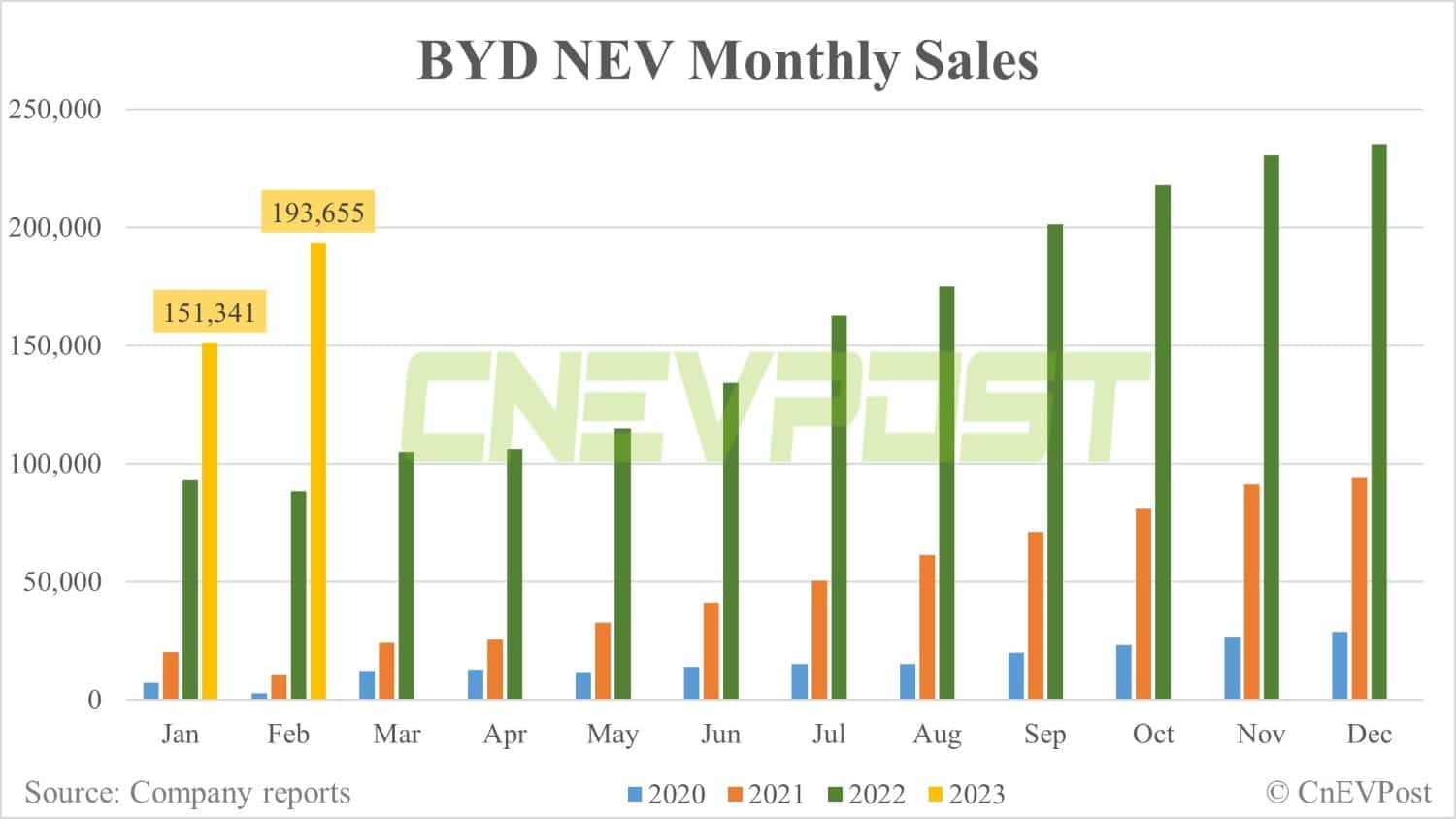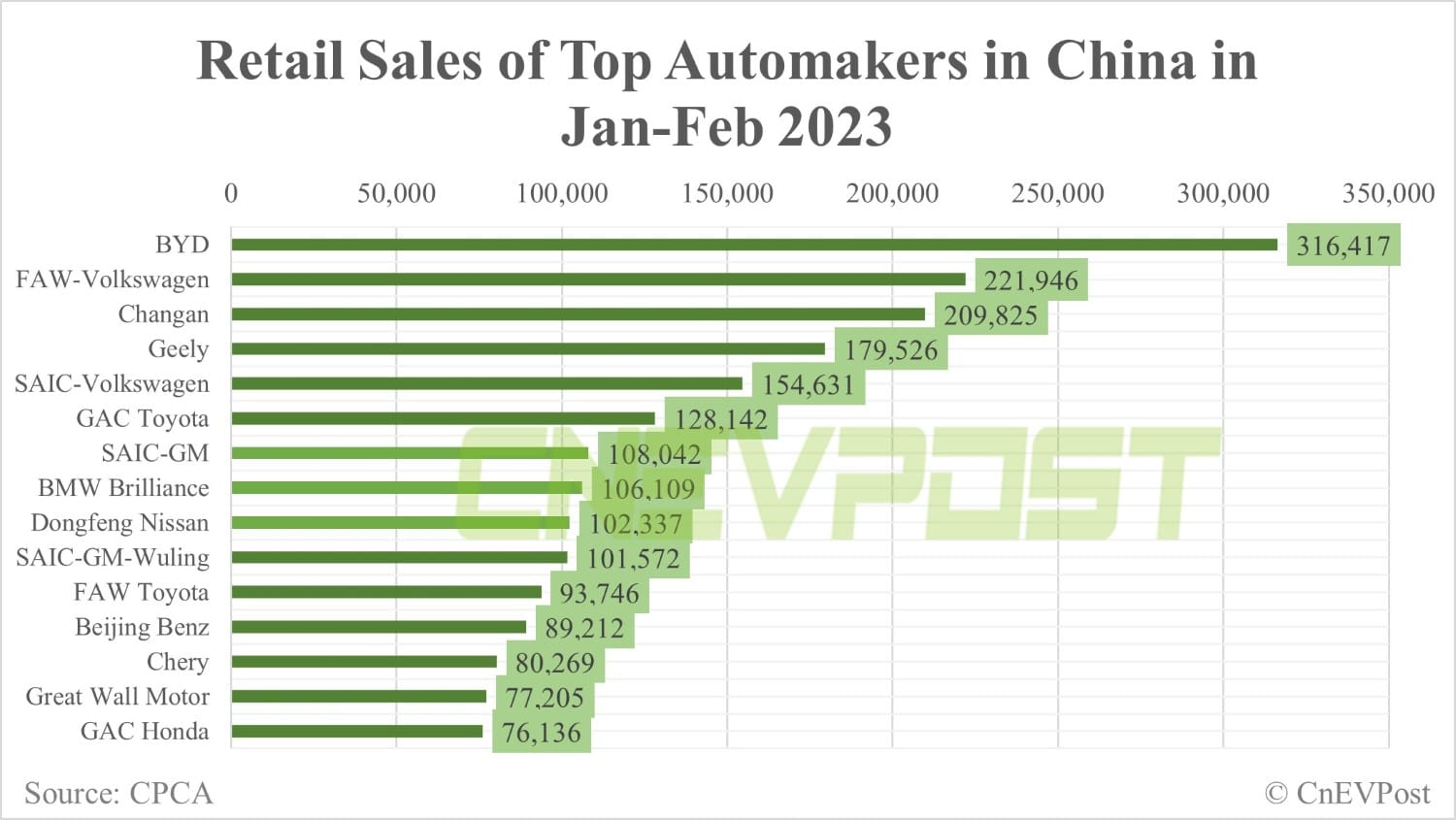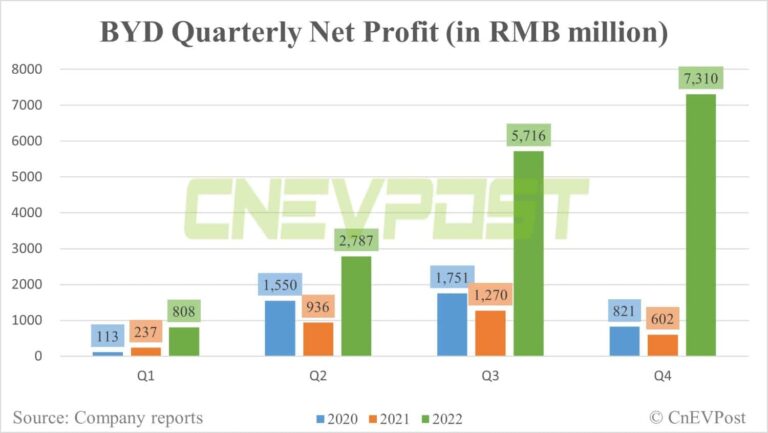Based on January-February retail sales, BYD is already the largest automaker in China with an 11.8 percent share.
BYD's new energy vehicle (NEV) sales are expected to maintain strong growth in the first quarter, despite the overall weak performance of China's passenger vehicle market.
In January and February, year-on-year growth in Chinese vehicle demand was slightly weaker, but BYD still maintained strong growth, the company's chairman and president, Wang Chuanfu, said at a conference today.
BYD's sales in January and February were much higher than a year ago, and in a few days, March figures will be released, and first-quarter sales are still expected to grow by more than 80 percent from a year ago, Wang said.
BYD yesterday announced its full-year 2022 and four-quarter results, showing a more than 10-fold year-on-year increase in net profit in the fourth quarter. The company held an investor meeting today that was not public, but the main points are being covered by local media.
BYD sold 151,341 and 193,655 NEVs in January and February, respectively, for a two-month total of 344,996 vehicles, up 90 percent year-on-year, according to data monitored by CnEVPost.
The company sold 286,329 vehicles in the first quarter of last year, and the more than 80 percent increase would mean sales of more than 515,400 vehicles in the first quarter, or more than 170,000 vehicles in March.
Wang also mentioned that BYD aims to be the largest automaker in China by the end of this year.
It is worth noting that BYD is already the largest automaker in China based on January-February sales.
BYD's retail sales of 316,417 units in January-February were the highest of all car companies in China, with an 11.8 percent share, according to a list published earlier this month by the China Passenger Car Association (CPCA).
FAW-Volkswagen was second with 221,946 retail sales in January-February, with an 8.3 percent share, and Changan Automobile was third with 209,825 units, or 7.8 percent share.
Wang, referring to the recent price war in China's auto industry, said today that the reason behind this is that supply is outstripping demand and some car companies will be phased out while others will gain greater market share.
China's home appliance and mobile phone industries have been through this, and the NEV industry will be no exception, he said.
If the supply in the auto industry is still greater than the demand, the price war will continue, he said.
The price war has had a certain psychological impact on consumers, but these effects are expected to be reduced by the end of April and market confidence will gradually return as several local auto shows take place in May, according to Wang.
He also mentioned that BYD has no plans to enter the US passenger car market for the time being.


